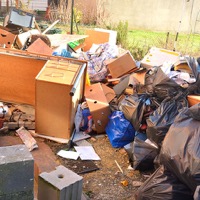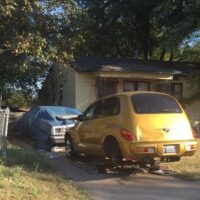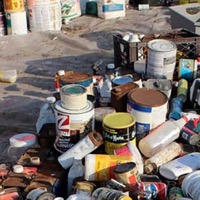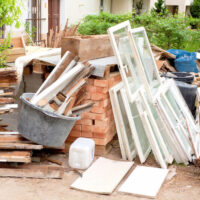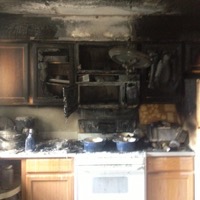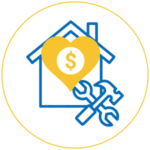
Building Stable Futures!
Our priority at SERVE is “Preventing Homelessness Before it Starts”.
Our HELP Services empower homeowners and landlords to retain and maintain their properties, reducing blight resulting in safer and more vibrant neighborhoods.
This creates a “Win-Win” for homeowners, renters, and our communities.
H – Hazard Mitigation: Supporting homeowners in identifying potential hazards on their property (eg. Fire Hazards, Faulty wiring, Lead paint, Asbestos) and offering resources for cost-effective mitigation strategies.
E – Education: Offering educational resources for homeowners to navigate issues related to maintenance and liens and other financial burdens.
L – Liability Protection: Focusing on protecting homeowners from potential legal liabilities associated with property ownership. It may involve advising homeowners on what are some the most common liabilities and the insurance options, legal considerations, and risk management strategies to mitigate the financial and legal consequences incidents on their properties.
P – Prevention: Creating proactive planning measures to prevent issues related to maintenance and liens before they escalate while simultaneously implementing preventive maintenance strategies to avoid costly repairs or legal complications in the future.
HELP Services & Resources
Code Violations & Compliance
What are Code Violations?
Code violations are breaches of regulations set by local government authorities that apply to buildings, structures, and property conditions. Examples of code violations include but are not limited to:
-
Broken windows
-
Peeling paint
-
Faulty electrical systems
-
Unsecured swimming pools
-
Unpermitted work
-
Illegal Structures
The process typically involves code enforcement receiving a complaint, which is followed by and investigation, then a notice of violation is issued with specified time frames for owner to complete work. Lastly a follow-up reinspection is performed to ensure work was completed to current code.
The above steps may vary by jurisdiction, and some cities or counties may have additional steps or different procedures. It is important for property owners to address any code violations promptly to avoid penalties and ensure the safety and well-being of the community.
What will happen if I don’t comply?
Failure to address code violations can lead to penalties and fines, and in severe cases, it can result in the loss of the property.
5 reasons why a homeowner should clear nuisance abatements immediately:
-
Sale or Refinance Challenges: When a property has code violations, it can significantly decrease the value of the property, and result in liens making it risky and more difficult to sell or obtain financing.
-
Legal Issues: Failure to address code violations can result in legal action, fines, and penalties.
-
Increased Insurance Premiums: Insurance companies may charge higher premiums or refuse to insure properties with code violations.
-
Safety Hazards: Unsecured swimming pools or faulty electrical systems can be safety hazards, potentially leading to injury or even death.
-
Increased Maintenance Costs: Ignoring code violations can result in more extensive repairs down the road, leading to increased maintenance costs.
Financial Support
Grants & Loans
At SERVE Housing, we understand that cleaning up a property while addressing Code Violations, Fire Damage, Flood Damage, Nuisance Abatements, Tax Liens, & Mortgage Defaults can be a financial burden for many homeowners. That’s why we offer support in acquiring grants and loans to help ease this burden. Our team is knowledgeable in various grant and loan programs available, and we work closely with you to identify the best options for your unique needs.
We are committed to helping homeowners maintain safe and compliant properties. Our support is designed to help homeowners overcome financial barriers and access the funds they need to clear the necessary code violations and/or pay tax liens.
To learn more about how we can help you acquire the grants and loans you need to maintain a safe and comfortable home.
Down Payment Assistance
COMING SOON…….
Credit Clean Up Support
COMING SOON…….
Mortgage Default Support
COMING SOON…….
Nuisance Abatements
What are Nuisance Abatements?
Nuisance abatements are legal orders typically from City or County Agencies that require property owners to remedy conditions that pose a risk to public health, safety, or welfare. Examples of nuisance abatements include but are not limited to:
- Overgrown vegetation
- Excessive noise,
- Garbage and debris on the property
- Derelict Auto Mobiles
- Vermin infestations
The process involves sending a notice to the property owner informing them of the violation and requiring them to take corrective action within a specific timeframe.
What will happen if I don’t comply?
Failure to comply with nuisance abatement orders can result in legal action, fines, penalties, or even the potential loss of property.
5 reasons why a homeowner should clear nuisance abatements immediately:
- Owner Liability: Once the owner has been notified about a Nuisance Abatement their liability drastically increases. Should a Fire occur injuring persons, or damaging neighboring homes, the owner may be held personally liable as most insurance policies will deny coverage.
- Sale or Refinance Challenges: When a property has code violations, it can significantly decrease the value of the property, and result in liens making it risky and more difficult to sell or obtain financing.
- Legal Issues: Failure to address code violations can result in legal action, fines, and penalties.
- Health Hazards: Nuisance abatements such as vermin infestations can pose serious health risks to the property owner and the surrounding community.
- Property Damage: Nuisance abatements like overgrown vegetation or a leaky roof can cause significant property damage over time.
Overgrown Yards
Why Should Homeowners Clear Weed and Tree Violations?
Homeowners should take proactive steps to maintain their property and clear any violations as soon as possible to avoid the negative ramifications that come with ignoring them.
- Avoid Fines: Ignoring a weed abatement violation can result in substantial fines that can add up over time.
- Avoid Liens: If the fines for a weed abatement violation go unpaid, a lien may be placed on the property, making it difficult to sell or refinance.
- Prevent Health Hazards: Overgrown weeds and vegetation can harbor pests and vermin that pose health risks to residents and neighboring properties.
- Avoid Legal Action: Homeowners who ignore weed abatement violations risk being taken to court, which can result in additional fines, legal fees, and court-ordered abatement.
- Avoid Fire Hazard: Overgrown vegetation can create a fire hazard, putting the property and neighboring properties at risk. Also creating a liability for the homeowner
- Meet Insurance Requirements: Some insurance policies may require that properties be maintained to avoid weed abatement violations.



